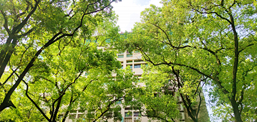A Journey of Learning, Reflection, and Educational Insight
发布时间:2025-04-21 16:21作者:来源: 浏览次数:
The cultural exchange experience at Diaoyu Fortress (钓鱼城) and Yucai School (育才学校), organized by the Faculty of Education at Southwest University, was not merely a sightseeing trip, it was a transformative journey into the heart of China’s rich history and forward-thinking educational philosophy. As a Nigerian student, I found the experience both enlightening and deeply meaningful, offering a unique blend of cultural immersion and academic enrichment.
Our first trip was our visit to Diaoyu Fortress (钓鱼城), a historic site which symbolizes China’s unyielding resilience and national pride. Standing on the grounds and looking across the huge walls built, where Chinese defenders withstood the powerful Mongol army in the 13th century during Song Dynasty, I felt a strong connection to the spirit of perseverance and unity. This symbolism resonated with me personally, as Nigeria, too, must demonstrate similar resilience in overcoming its own socio-educational challenges.
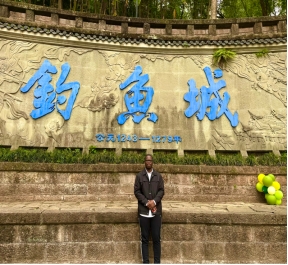
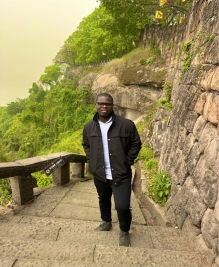
Additionally, the meticulous preservation of the fortress, its walls, towers, and historical narratives, reflects China’s deep respect for its past and the role of history in shaping civic identity and patriotism. As a Nigerian, this experience was both humbling and thought-provoking. Nigeria is home to an equally rich and diverse cultural heritage, from the ancient Nok civilization to the Great Wall of Benin (also known as the Benin Moat), one of the longest ancient earthworks in the world, which showcased the Benin Kingdom’s advanced indigenous engineering. Other landmarks like the Sukur Cultural Landscape and Osun-Osogbo Sacred Grove further attest to this legacy. Yet many of Nigeria’s historical sites suffer from neglect, poor documentation, and inadequate preservation. The visit to Diaoyu Fortress underscored the need for greater investment in preserving Nigeria’s cultural landmarks, not just as tourist attractions, but as educational resources that instill national pride, cultural awareness, and historical consciousness in younger generations.
Our second visit was to Yucai school (育才学校), founded by Tao Xingzhi (陶行知), a visionary educator, reformer, and transformational leader. Tao Xingzhi viewed education as the foundation for personal growth, social harmony, and national progress. His legacy in education, as explained by Professor Li and Ms. Wang, embodied in Yucai Primary School and his “Ten Principles for Cultivating Talents,” advocated a holistic, practical approach to learning. Tao Xingzhi emphasized independent thinking, hands-on learning, and the integration of school, nation, and the wider world. Core subjects like language, math, science, and foreign languages were seen as keys to knowledge, while learning should occur through diverse methods such as experience, reading, and collaboration. Tao Xingzhi dedicated his life to promoting quality education, focusing on educating farmers and children from the middle and lower classes, and ensuring that everyone had access to education. Altogether, his principles promoted not just academic growth, but the development of well-rounded, socially responsible individuals.
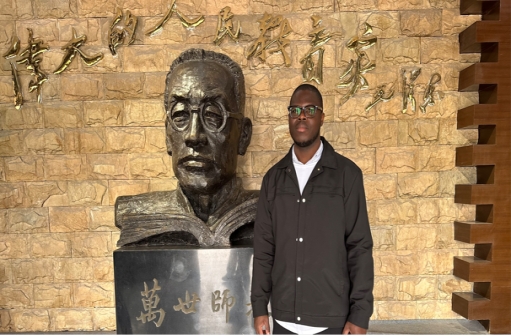
This immediately reminds me of UNICEF’s report (2023), suggesting that Nigeria is facing a severe learning crisis where only 25% of children aged 7 to 14 can read with understanding or solve basic mathematical problems. This alarming statistic calls for a fundamental reevaluation of Nigeria’s approach to education, particularly at the grassroots level. In this context, Tao Xingzhi’s educational philosophy becomes profoundly relevant, emphasizing the need to enhance teacher training, adopt activity-based learning methodologies, and strengthen community-school partnerships.
As a Nigerian student, this cultural exchange experience carried deep personal and professional implications. Witnessing firsthand the legacy of Tao Xingzhi and exploring institutions rooted in his educational ideals offered not only inspiration but also a challenging question: how can I, and others like me, contribute to transforming the Nigerian education system using lessons learned abroad, as great educators like Tao Xingzhi did during their time?
Finally, this visit reaffirmed my commitment to being an active agent of change in Nigeria’s educational landscape. Whether through research, policy advocacy, or teacher training, I now feel a stronger sense of responsibility to contribute to a system where every Nigerian child has access to quality, meaningful education, just as Tao Xingzhi envisioned for China. This exchange was not just a visit; it was a call to action.
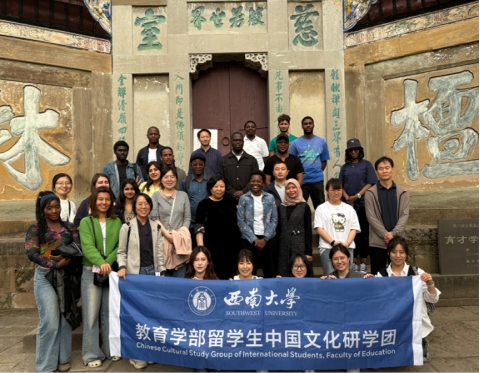
供稿:Miracle Uzochukwu Okafor(齐迹)
初审:陈本友
复审:王 雪
终审:王正青
- 学部概况
- 部徽
- 部训
- 部长寄语
-
西南大学教育学为“双一流”建设学科。教育学部是办学历史悠久的研究型学部,1984年获教学论博士学位授权点,2003年获教育学一级学科博士学位授权,2007年课程与教学论获批国家重点学科,在教育部第四轮学科评估中被评为A类学科。【点击查看详细介绍】
地址:重庆市北碚区天生路2号田家炳教育书院 电话:023-68252305 网址:jyxb.swu.edu.cn
-
西南大学教育学部
The Faculty of Education , Southwest University
-

